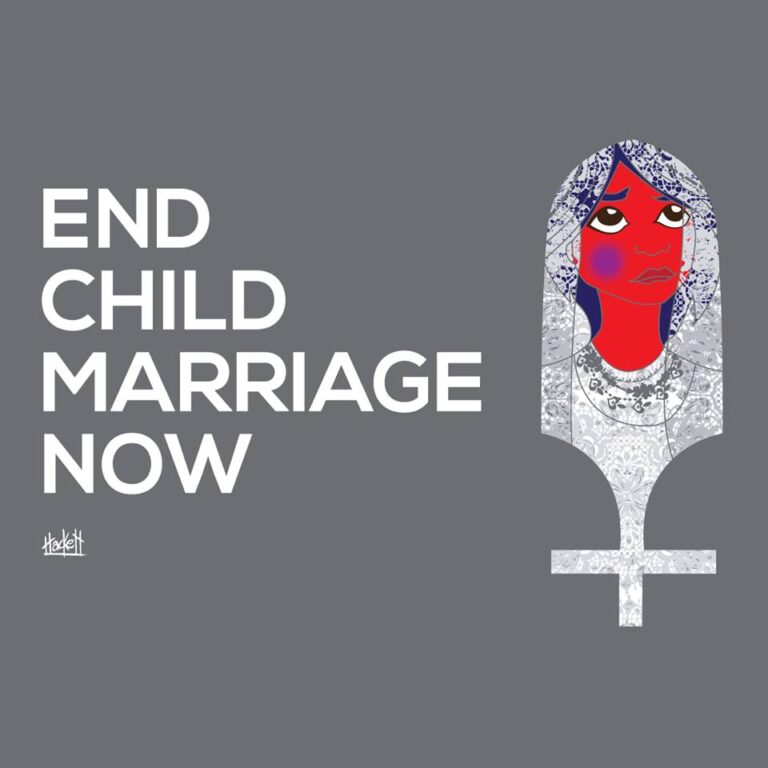World Cup 2014 was definitely one of the most exciting World Cups of all time. High in emotion, local bar patrons turned lawyers challenging FIFA regulations and refereeing, major Internet blogs on football rules, game statistics, team strategies and player personalities – nuff vibes. And we were all happy to see in our lifetime the increased Latin American representation in the Finals and the Colombian celebration dance! Conversely, this WC was not as exciting for the mass of Brazilians who neither achieved major successes in their public demands of the State for equity and accountability nor did they have their chance for dinner at the desired table of national pride with the golden cup as the centerpiece.
Everyday on Facebook, I read posts about Bandwagonists. Some commentators went as far as arguing that Trinbagonian support for non-national teams was unpatriotic. Not quite true. Limiting my writing to the Institution of Brazilian Football in Trinidad and Tobago, I argue that an oversimplification of emotional ties to non-national teams is a saddes’ position that will give you about sixteen (16) likes on your status by close family, two neighbours and that hater from form 5 who neither liked Samurai X nor Box Lunch.
Ask anyone who supports Brazilian Football: Why Brazil? He or she may reply, “the style”. (Ask anyone why he or she does not support Brazil? A typical reply may be: “ummm, I doe like how everybody like dem”/”deyz win too much”/”deyz not a team, is ah individual”). Some persons say they like the ‘offensive’ nature of Brazilian football. This is a very limiting description and categorization of their ‘art of football’ because it imposes football and football strategy as either offensive or defensive; a false binary that can bring little success in today’s game.
Literally, 80% of Trinbagonians love Brazil (made that number up). Part of it has to do with the Brazilian success story of returning home the most number of Cups to their homeland. Part of it also has to do with the production of ARGUABLY the greatest 20th Century goal scorer Edson Arantes do Nascimento, known as Pele. And part of it has to do with the entrenching of Brasilian football into their national culture, which became a global cultural phenomenon – ask your older family and friends about Brazil in the 1970 World Cup (first WC televised in colour). The style of football was full of artistry, improvisation and playful expressions of sport versus the textbook technique football established in Europe. This resonated with other peoples of the world who also shared those same bodily rhythms and dances in everyday life. The ‘Brazilianisation” of the European sport connected with the lovers of the game. Thank Jah for Capoeira!
However, the purpose of this blog piece is not to speak to the aesthetics of Brazilian football nor journey into their history. After all, we had one of the most humiliating defeats in Football’s hall-of-shame at the World Cup (7-1). I thought Ashton Kutcher would jump across the television screen and would have successfully Punk’d the world into believing the score. Germans played liked a national football team against an INTERCOL team in a zonal game. And believe it or not, most people in Trinidad and Tobago missed the ‘thirty-second’ goal when the replay was busy showing what happened earlier that minute. This blog piece notes some of the observations I made this year where FIFA’s anti-racism campaign only offered lip service to the realities of black/brown peoples and how Brazil’s performance was always about their political troubles.
We saw the reality of global migratory movements in the colouring of Euro-American teams. That’s why I tell my students in class, “Globalization is not about crossing borders…it is about going down de road”. However, one must ask where were the black/brown peoples in the stadium? Or, was it just camera bias? Notwithstanding that most subsidized tickets were sold on the Internet, which required credit cards. Notwithstanding a significant portion of tickets were auctioned and placed on lotteries for nationals AND foreigners. Notwithstanding the ban on local vendors in the stadium where lower-class black and indigenous groups may have brought into question: world cup as economic stimulus for whom? Suzanne Mills has highlighted some of these hypocrisies in the Sunday Newsday, July 20. A glimpse at history shows us how the success of Brazil football since the early 20th century has helped create an intimate reflection of a Brazilian national self-image.
Football, used as a metaphor for nation, race, modernity and ‘progress’ articulated Brazil as a mixed society of racial hybridity and harmony. In Trinidad and Tobago, we do pretty much the same with Carnival expressions and glossy magazine covers of beautifully brown racially ambiguous female bodies that represent the ‘national’ or ‘Trini beauty’. However, this ‘national spirit’ does not examine the underlying attitudes, structural problems, and impediments that undermine the very same people they preach to include – the black/brown peoples.
Affirmation of unity, more than often, is an argument used to sanitize racial discourse and promote classist divisions of hegemonic and dominant structures (upheld by powerful people with brown and black faces too). Not confronting the issue of racial exclusion, the position of minorities, the uncritical eye discerning, ‘what constitutes the national?’ will allow us to overlook the fact that an economic apartheid exists in Brazil, a country which hosted one of the largest slave populations in the Western World and produced sugar along with one of the most complex colour hierarchies of a race-colour continuum of blackness and whiteness. In context, when a star player visibly “deviates” from his childhood complexion and teammates straighten and dye their hair; please understand that up to today, black people thrive on opportunities to be white for upward mobility and social status. However, in this day and age of DNA testing and ‘life span’ photography, many people would settle for just the ‘opportunity to be less black’.
In Brazil, scapegoating and statistics forced Fred into early retirement. You could say what you want but what Coach Dunga tried to develop in 2010 sure as hell mattered in 2014! *Ronaldhinio where you at, bro?* Maybe the President of Brasil should have run her government like a football game. Maybe her public would have been satisfied and her national team more successful if she followed some basic tenets of the game. Even if goal supremacy is the aim of football – a developed striking talent is as good as a creative midfield, which creates the environment for forward play. Similarly, industries grow from wide business environments with consumer power – this spurs economic growth.
A strong defense will not make the keeper vulnerable. A strong defense is for sustainability. This is your social net that protects and defends the interests of a people – this is your investment in social growth.
People of Brasil and the President were in trouble from day one. The climate of political unrest, mismanagement and lack of transparency in the football federations, consistent exportation of top-talent to Europe (sometimes in contravention of FIFA transfer rules) and Scolari’s poor decision to keep starting Fred and keep him on for more than one minute all combined to bring about Brasil’s lackluster performance for the world to see. Dilma Rousseff did not deliver on the social promises and mop the blood from the favelas and her reluctant handover of the cup to Germany was not her best smile. We know, we know, football is more than a game.
At home, my Prime Minister travelled to Brazil “privately funded”. Common sense asks, “what are the attached costs to the State for the visit?” Its funny how Barack Obama is required to answer questions that Caribbean Prime Ministers do not. Something that hits home more is the footing of the bill for the Soca Warriors, a ‘gift’ to the nation advertised on my television set (privately or publicly funded?). The big decision happened without a parliamentary debate, a national discussion. Allowing public officials to circumvent legal matters and take public affairs into their private hands without challenge is a symptom of our poverty of Information and lack of public accountability.
So tell me why people did not build conversations about hair and skin colour, Eurocentric commentary and bias, celebrity culture and media sensationalism of an individual star over the team, global norms about beauty and masculine ideals, tattoos, migration, Argentinians’ rocky history with other Latin countries, globalization, citizenship, US right-wing assertions that soccer is a non-American immigrant game, Surinamese players for Netherlands and France the new Republic in Africa (if you took a look at the players), tell me why these discussions did not emerge? Why post a picture of Hitler to express your support for Germany’s national football team? Why you no read yo history?
In the end, Brazil hosted a World Cup and the candle cost more than the funeral. I hope they/we have learnt our lesson moving ahead.
No matter how much I cried…tears don’t always win.


The Hitler thing reminded me of this young creole fella on boomchampions’ FB who was a German fan. He was doing some kind of rendition about how Germany beat Brazil like the time “he led a German army on a summer night and invaded Poland.” I was there like ..”Did this boy not realize that at that time people of his race were in the death camps by these same ppl he “led”?
This also made me realize, I watched many of the games and rarely did I see a dark spectator.
I heard too it was not popular in Brazil as well because they displaced a lot of ppl to build the stadiums.
Wonderfully said!
Much of what you discussed here wouldn’t pass me by as I was forced to enjoy whatever I could of the World Cup via my Twitter TL. Most times it left me utterly confused at how low one would stoop for a few RTs. It never even seemed to occur to some that glorifying Hitler’s efforts was the least appropriate of a comment they could make.
It was quite evident from the games that the crowds reflected an absence of the majority population. And it reminded me of 2007 Cricket World Cup which was staged in the Caribbean, where expensive stadia were literally empty of the people of the region because of all the restrictions- costs and cultural- for the stake of the organizers who were aided and abetted by Chris Dehring and the LOC. In fact it took foreign pressure from commentators, players and international journalist to relax the measures. In the end it was a World Cup that was remembered for all its negativities. The point I am trying to articulate in context to what you have articulated is that we have reached a stage of capitalism where we are willing or believe that we have to forgo all that is ours in order to fit in. In 2007, South Africa hosted the first T20 World Cup and they ensured that they did not commit the same errors as the West Indies World Cup organisers. The West Indies Organizers may have argued that they made profit and that is what matters most in the contemporary world. Brazil apparently voluntarily or otherwise choose to ensure that FIFA and its sponsors had their way!